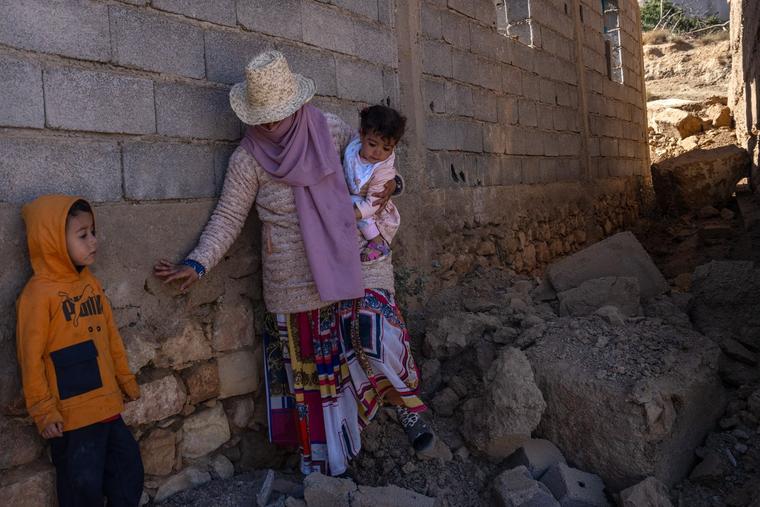Catholic Leader in Morocco: It May Take Years to Rebuild After Earthquake
Cardinal López Romero gave a Sept. 11 interview to Caritas International and released a statement calling for prayers and solidarity with those affected by the earthquake.

The leader of the Catholic Church in Morocco said this week that material support and prayers will be needed for “months, or maybe even years,” after the nation of 37 million was rocked by its worst earthquake in decades.
In a Sept. 11 interview with Caritas International, Cardinal Cristóbal López Romero, archbishop of Rabat and president of Caritas Morocco, said the situation in the country “varies from day to day, not to say hour to hour.”
“It is changing positively in the sense that the authorities and civil society are organizing themselves to help the victims, but it is changing negatively because day by day, hour by hour, the number of dead and injured is rising,” the 71-year-old Spaniard said.
The 6.8-magnitude earthquake, which hit near the historic city of Marrakesh Friday night, has killed more than 2,900 people as of Sept. 13, The New York Times reported. It is the deadliest earthquake to hit the North African nation since at least 1960.
The cardinal, who leads the country’s small Catholic community, said that as of Sept. 11, one of the biggest physical needs of the people of Morocco is for electricity, as well as clothes, medicine and food.
“[M]ost of all, I think they will need people to come and support them, because psychologically and spiritually they are very affected,” the cardinal said.
Difficulties in distributing aid faced by Caritas Morocco, the local branch of the worldwide Catholic charity, include the nation’s thinly dispersed population as well as widespread destroyed and damaged infrastructure, Cardinal López Romero said. He said Caritas Marrakech and Caritas Morocco were, as of Sept. 11, trying to make contact with authorities and also with other associations or entities that want to help amid an “outpouring of solidarity and commitment.”
“Many civil society organizations and the government [are doing their] utmost to come to the help of these afflicted people. So we also belong to the global community and we have to be part of this whole, which must be coordinated,” Cardinal López Romero continued.
“I would like to end by thanking so many people who have shown their solidarity, with emotional solidarity through messages, through prayer, but also with effective solidarity, that is, through donations that will allow us to acquire all the aid we can bring to these people and also to participate in what will be the third phase,” the cardinal concluded.
“I call it the reconstruction phase, which will take months, or maybe even years, to rebuild everything that has been destroyed. Therefore, any help won’t be enough.”
Cardinal López Romero noted that, in Libya, major floods have killed an estimated 10,000 people in the wake of torrential downpours and multiple dam failures. The Vatican said in a Sept. 12 telegram that Pope Francis was “deeply saddened” by the national tragedy, offering prayers to the country as it works to address the disaster and rescue those still affected by it.
“We do not want to be exclusive, and we also ask everyone to show solidarity with our brothers and sisters in Libya. The Church there is even smaller than ours, but they will do all they can to collaborate in helping the people who have suffered from this flood,” the cardinal said.
Cardinal López Romero had on Sept. 11 released a statement calling for prayers and solidarity with those affected by the earthquake. Morocco is estimated to be about 99% Muslim.
“Faced with this tragedy, we would like to express our compassion and our closeness to the entire country and to all the Moroccan families who are in mourning, who have injured members, who have lost their homes and their property,” the cardinal said in that statement.
“With you, we turn to the one God who is the Compassionate, the Merciful. On Sunday, in all the churches across the country, we prayed for the victims, and for all the suffering and grieving families, that God would give them the strength and courage to remain standing and continue the journey. We will continue to pray with this intention, that hope prevails over despair.”
HOW YOU CAN HELP
To help the victims of the earthquake and the floods, visit Caritas’ website here.
- Keywords:
- morocco
- earthquakes
















